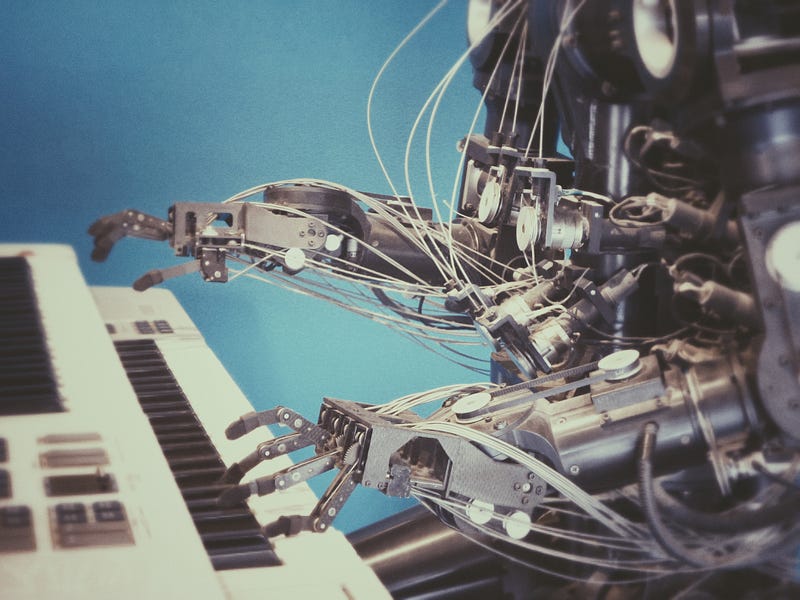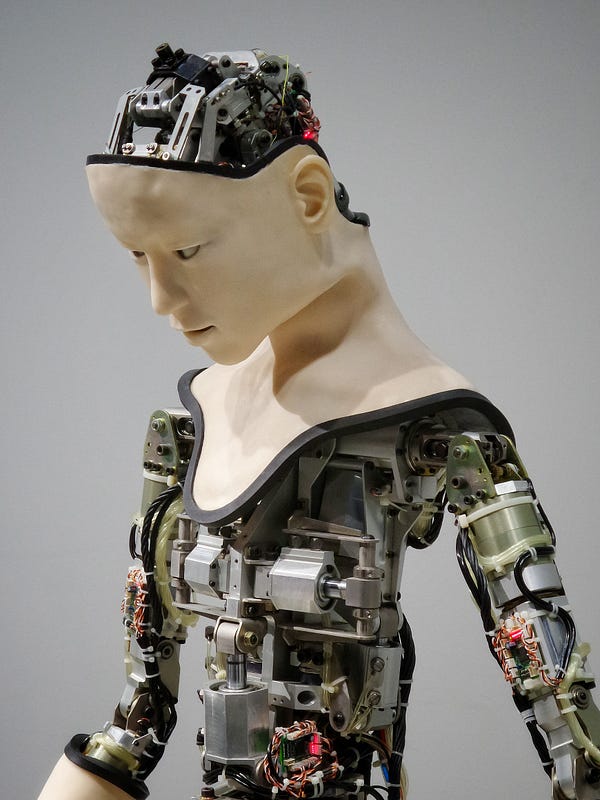Artificial Intelligence: The End of the World as We Know It? | Intech Company

Steven Hawking’s words provide a chilling future of a world dominated by artificial intelligence.
Speaking on this same subject, that of artificial intelligence, Elon Musk has said that “the risk of something seriously dangerous happening is in the five-year timeframe. 10 years at most.”
Others warn us to not rush to such ominous, apocalyptic conclusions. As Peter Diamandis commented, “[Artificial Intelligence] …will dramatically [improve] the quality of life for 8 billion people, pushing us closer towards a world of abundance.”
So, which is it? A world of terror where we are subservient to robots created by our own hands? Or one in which our lives are made better by the miracles of modern technology?
Here we break down what is fact and what is fiction.
What is artificial intelligence?
Artificial intelligence is one of the most misunderstood topics in the world today, as there is much confusion about what is really meant by “artificial intelligence.”
Alan Turing, thought of by many as the father of this field, was one of the first to conjecture about the possibility of so called “thinking machines.” John McCarthy, only a few years later, coined the term “artificial intelligence” to describe machines that had the ability to think autonomously.
Artificial intelligence has evolved since its beginning, and its definition with it. Put simply, in today’s view, artificial intelligence is “any technique which enables computers to mimic human behavior.”
Recent leaders in the discipline have further defined three qualities that make something artificial intelligence: intentionality, intelligence, and adaptability. While computers may be able to be “hard coded” to perform a certain task, it is only when these three qualities are obtained that something really starts to approach what is meant by artificial intelligence.
You can read more about their ideas about what really constitutes artificial intelligence here.
What is the current state of artificial intelligence?
The number of tasks that artificial intelligence has been able to accomplish to date is really quite amazing. This list includes the ability to:
- Speak
- Recognize emotions in images of faces
- Recognize emotions in speech
- Drive
- Discover new uses for existing drugs
- Spot cancer in tissue slides better than human epidemiologists
- Predict social unrest 5 days before it happens
- Verify your identity
- Beat humans at Jeopardy
- Beat the best human players at Texas Hold ’Em Poker
- Paint Van Gogh
- Write music
- Come up with original recipes
- Write sports articles for the associated press

You can view a more complete list of the impressive things that artificial intelligence can do today here.
The most recent International Conference for Learning Representations provided additional insight into the current state of artificial intelligence. Among other things, researchers at the conference demonstrated the ability of robots to navigate an office after a single demonstration with no guidance, as well as the ability of an autonomous bicycle to follow people on its own via a technique known as integer deep neural network training.
However, it was also noted at this conference that there are still many fundamental problems with current artificial intelligence.
First, there is the problem of reproducibility. A survey of artificial intelligence researchers had 90% of those interviewed agree that this was a major problem in the development of artificial intelligence.
In addition, while advancements have been remarkable in recent years, humans still clearly hold the upper hand. For example, one advanced computer at the conference was tricked into believing a 3D-printed model turtle was a rifle.
This conference is discussed in more detail here.
It would seem that while these truly are impressive machines, to this point they are just that — machines. They still lack many of the inherent qualities and skills that differentiate us from the rest of the animal kingdom.
What is the future of artificial intelligence?
A recent survey performed by a combined group from the University of Oxford and Yale University highlights the brightest minds in artificial intelligence’s views on the future timeline of its development. In the survey, they reached out to all corresponding researchers who had presented work at the two most recent, world-renowned artificial intelligence conferences.

According to their responses, the majority of experts believe that artificial intelligence will outperform humans in a number of simple tasks relatively quickly. These include translating from language to language (2024), writing an essay at a high school level (2026), and driving a truck (2027). Just a few years later, they predict more complicated tasks to be within reach, including working in retail (2031), writing a bestselling book (2049), and working as a surgeon (2053). Lastly, these researchers believe that within the next 45 years, there is a 50% chance that humans will be outperformed by artificial intelligence in all tasks, and that within 120 years, all human jobs will be automated.
Scary, right?
However, it is also interesting to note that only 5% of those interviewed said that they believe that these advancements will be “extremely bad.” Rather, the majority believe that these technological breakthroughs will be beneficial to humanity. Further, most think that these developments will lead to further progression and growth.
So, after all is said and done, how realistic are these doomsday predictions?
All things considered, artificial intelligence is an exciting area of study in the world today. It continues to advance at neck-breaking speeds. Its applications in our everyday lives only continue to grow, for better or for worse. And yes, it is prudent to be aware of how a significant increase in this technology will affect our world.
However, a future where humans are exterminated due to super-intelligent robots seems, at least for the foreseeable future, one reserved for the likes of The Terminator and iRobot.
In the meantime, let’s enjoy the blessings of technology as we “[push]…closer towards a world of abundance.”




Post a Comment